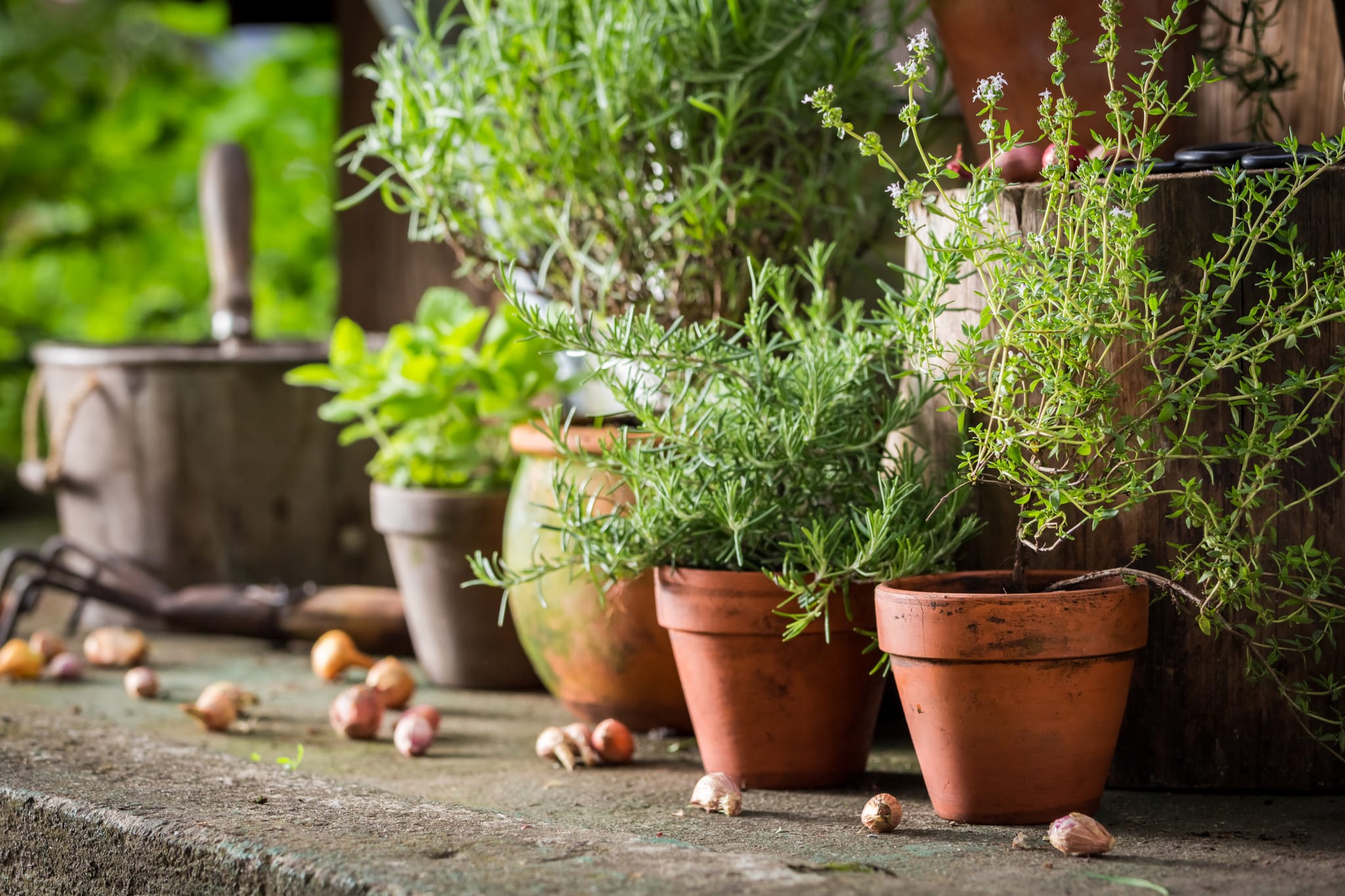Cooking with fresh herbs is one of the joys of having a garden. But many herbs die down and become dormant over autumn and winter. The good news is that there are tricks to keep the plants going through the colder months, and give you fresh supplies until Christmas and beyond.
Hardy outdoor herbs
Some plants grow through the colder months regardless. Mint, parsley and rosemary are all hardy plants that will survive even in the snow. However, cold weather will reduce their growth, so you should limit the harvest. If you take too much, the plant may die.
Make sure your pots have good drainage – waterlogged roots will rot and die. Lift the pot up on feet and move to a sheltered spot if the soil gets too wet.

Tender outdoor herbs

Herbs like bay, sage and thyme are hardy enough to survive the winter outside, but will not grow. If you want to harvest from them, protect them against the coldest weather. You can move plants into a coldframe, or an unheated greenhouse or conservatory. Make sure to ventilate them on milder days.
Most perennial and biennial herbs will keep growing under protection of cloches or a coldframe.
You can also keep these plants outside in a sheltered spot, and just protect from cold spells. Wrap containers and plants in a few layers of horticultural fleece – remember to protect the roots too!
Bring herbs indoors
Keep plants going by bringing them indoors when the weather turns. Mint, sage, basil, thyme, oregano and tarragon will all grow happily on a sunny windowsill.
Don’t place them over a radiator or the heat will damage them.

You can also sow herbs indoors for winter cropping. Sow dill, parsley and coriander seeds into trays and pot up once the seedlings are large enough to handle. Keep them sheltered and warm to encourage fast growth.
It is better to grow from seed that to take cuttings, as the plant will develop faster. If you want to grow sage, sow it on the soil surface – it germinates by light.
Storing the harvest

It is also possible to harvest the herbs in autumn and store them for use over winter. Bunch them together and hang in a warm place to dry out, before storing in airtight containers.
Or freeze the herbs until you are ready to use them. This is effective for herbs that don’t dry well, like chives, dill, parsley and tarragon. However, they may turn a little mushy.
Wash herbs but allow to dry completely before freezing. Place on a tray lined with greaseproof and freeze them. Then pop them in freezer bags and use as required.
Or chop herbs and pop into ice cube trays. Add a tiny amount of water and freeze. You can add this to soups, stews and gravy.

Leave A Comment